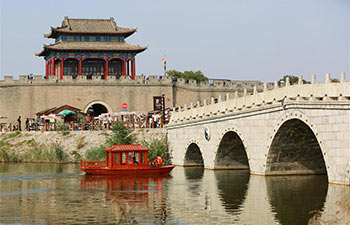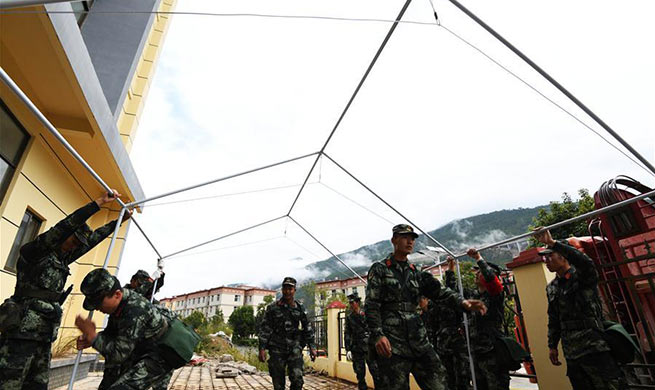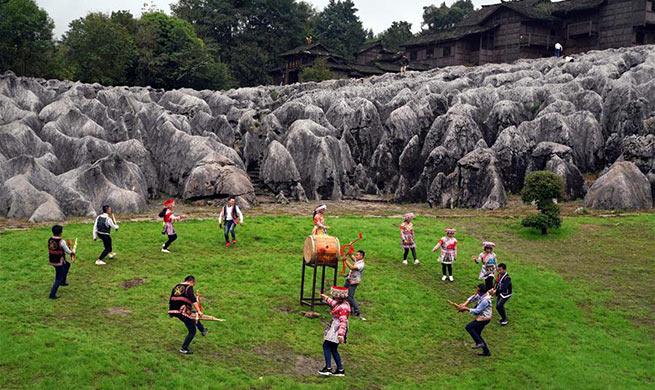TRIPOLI, Oct. 14 (Xinhua) -- The cabinet reshuffle approved by Libya's UN-backed Prime Minister, Fayez Serraj, was strongly opposed by the conflicting parties.
Serraj appointed last week new minister of interior, minister of industry and economy, and minister of finance, as well as a new head of the General Authority of Sports and Youth, according to the PM's information office.
Serraj's decision drew great opposition. Some interpreted it as an attempt to protect his position in the government, while others challenged some of the new ministers.
The eastern-based House of Representatives (Parliament) issued a statement objecting Serraj's "unilateral" cabinet reshuffle, considering "Serraj's decisions that violate the political agreement were the reason for resignation of many members of the Presidential Council."
The Parliament said that more than 134 members, supporters and objectors of Serraj's government, requested withdrawal of confidence from the Government.
"What Serraj has done aimed to block consensus between the conflicting parties to find a unified executive authority," said Head of Parliament's Dialogue Committee, Abdossalam Naseya.
"At this stage, the problem is not in the ministers. The problem is (lack of) a government for all Libyans that controls the whole country," Naseya added.
Fawzi Al-Agab, the second deputy head of the Tripoli-based Higher Council of State, described the cabinet reshuffle as "deceiving."
He said that "the crisis lies in the Presidential Council, not in the government, whether in its structure, the mechanism of its decision making, or because it represents an obstacle to ending the political division."
The Head of the Higher Council of State, Khalid al-Meshri, said last week at the opening of a formal session that "Serraj did not consult the Higher Council of State and the House of Representatives regarding the replacement of the ministers."
Despite suggestion of opposition, al-Meshri reiterated that the Higher Council of State "will deal positively with the new changes, so as not to obstruct any efforts that may contribute to improving the security and living conditions of the people."
The parliament and the Higher Council of State continue their procedures, which were launched a while ago, to change the Presidential Council led by Serraj.
Parliament member Abdossalam Naseya said he presented a proposal approved by the parliament members on the mechanism of changing the Presidential Council to the Higher Council of State for consideration and consensus.
Naseya's proposal is based on selecting a new Presidential Council that consists of a president and two deputies instead of the current one that consists of a president and nine deputies.
The proposal also suggests that the three officials of the new council be from the three regions of Libya: east, west and south.
Amid the controversy over the cabinet reshuffle, Serraj's spokesman revealed that the main reason behind the move was to "promote economic and security reforms," according to a brief statement quoted by Reuters.
Despite the spokesman's statement, Libyan politician, Tayeb al-Bargawi, questioned the purpose behind the decision, saying "the reason is not convincing, because the replaced ministers are doing very well" to Xinhua.
Serraj's government was appointed based on a UN-sponsored political agreement signed by the Libyan parties later in 2015, with the aim to end the country's political division.
However, Libya still suffers political division as well as escalating violence that plagues the north African nation since the fall of former leader Muammar Gaddafi's regime in 2011.












